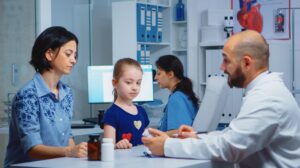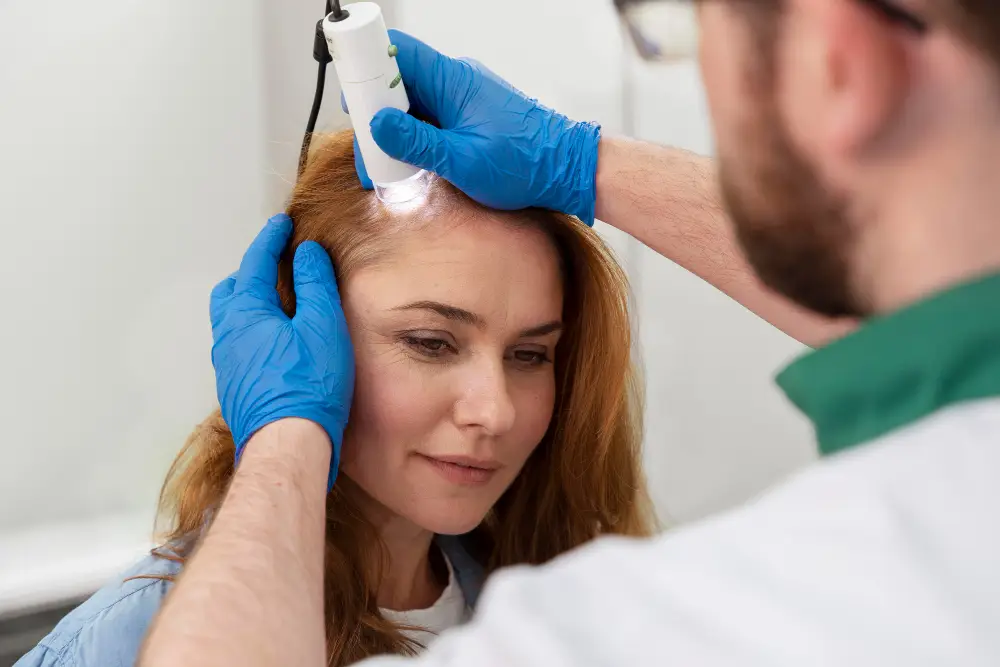
Key Takeaways from This Guide:
- Autism Spectrum Disorder (ASD) requires a multifaceted approach, and research into regenerative pathways offers new avenues for understanding.
- Mesenchymal Stem Cells (MSCs) are a focus in research for their potential roles in immune modulation and addressing neuroinflammation, areas of interest in ASD.
- Colombia’s healthcare sector, particularly in Pereira, is recognized for robust infrastructure and a patient-centric environment, providing a supportive setting for those exploring investigational pathways.
- Our team prioritizes ethical considerations, transparent education, and comprehensive logistical support for families considering novel approaches.
- Making informed decisions about evolving fields like regenerative medicine for autism requires thorough education and a confidential, personalized case review.
Autism Stem Cell Treatment: Understanding Research & Patient Pathways in Pereira, Colombia
Navigating the complex landscape of Autism Spectrum Disorder (ASD) can be an overwhelming journey for individuals and their families. While conventional interventions provide significant support, the continuous evolution of medical science leads many to explore emerging research pathways. One such area drawing considerable interest is the potential role of regenerative approaches, including the use of mesenchymal stem cells, in understanding and potentially influencing aspects of ASD.
This comprehensive guide is designed to shed light on the current research surrounding these approaches, clarify the ethical considerations, and outline what a patient journey might entail when exploring such options in a supportive environment like Pereira, Colombia. Our aim is to empower you with knowledge, address common anxieties, and provide a clear, empathetic roadmap to making informed decisions for your loved one. We believe that clarity and comprehensive support are paramount when considering any advanced medical pathway.
The Stakes & Critical Implications of Autism Spectrum Disorder

Autism Spectrum Disorder (ASD) is a neurodevelopmental condition characterized by difficulties in social interaction and communication, and by restricted or repetitive patterns of thought and behavior. Its presentation is highly variable, leading to the “spectrum” in its name. According to the World Health Organization (WHO), ASD affects an estimated 1 in 100 children globally, with varying prevalence rates reported across different regions. This highlights the widespread impact and the global search for effective supports and interventions.
The implications of ASD extend to every aspect of an individual’s life, from education and employment to social relationships and daily living. Families often face significant challenges, including the emotional toll of diagnosis, navigating educational systems, accessing appropriate therapies, and managing the financial burdens of long-term care. The quest for additional strategies and approaches that might offer a better quality of life is therefore deeply personal and incredibly important for many families.
Understanding the underlying biological mechanisms of ASD is an active area of research. Studies highlighted by the U.S. National Institutes of Health (NIH) continue to investigate genetic, environmental, and neurological factors. While no single cause has been identified, emerging research points to complex interactions within the brain and body that contribute to the diverse manifestations of ASD. This ongoing exploration fuels the search for novel pathways, including those in regenerative medicine.
The Current Landscape of Autism Interventions in a Global Context

Current interventions for ASD focus primarily on behavioral, educational, and developmental therapies designed to improve communication, social skills, and adaptive behaviors. These include Applied Behavior Analysis (ABA), speech therapy, occupational therapy, and various educational programs tailored to individual needs. While these approaches are foundational and critically important, they are often long-term and may not address all aspects of the condition, particularly those related to underlying biological processes.
Many families, after years of conventional therapy, seek additional avenues. This often leads them to explore investigational pathways and complementary approaches, sometimes necessitating international travel to access promising research or different care philosophies. This global search for options underscores the ongoing need for more comprehensive understandings and a broader array of supportive strategies for ASD.
The pursuit of additional options, however, comes with its own set of challenges. Families are often confronted with a vast amount of information, much of it contradictory or lacking robust scientific backing. Distinguishing between established science, ongoing research, and unverified claims requires careful consideration and thorough vetting. This is particularly true in emerging fields like regenerative medicine, where the pace of discovery can outstrip public understanding.
Understanding the Science: Regenerative Approaches and Autism Research

Regenerative medicine encompasses a broad range of scientific advancements focused on repairing, replacing, or regenerating damaged cells, tissues, and organs. In the context of autism spectrum disorder, research in regenerative medicine, particularly involving mesenchymal stem cells, explores potential ways to influence neurological and immune system functions that may be atypical in ASD.
It is crucial to understand that while this is a dynamic area of scientific inquiry, regenerative medicine pathways for autism are considered investigational. There are no universally recognized or government-approved “cures” for autism using these methods. Instead, research aims to understand biological mechanisms and explore potential modulatory effects that could, in the future, contribute to improved well-being.
Mesenchymal Stem Cells (MSCs): A Focus of Research
Mesenchymal stem cells (MSCs) are a type of adult stem cell found in various tissues, including bone marrow, adipose tissue (fat), and umbilical cord tissue. These cells have captured the attention of researchers due to their particular properties, which are distinct from embryonic stem cells. According to numerous PubMed-indexed peer-reviewed journals, MSCs are being studied for their:
- Immunomodulatory properties: MSCs have shown the ability to influence the immune system, potentially reducing inflammation. This is particularly relevant in autism research, where neuroinflammation is being investigated as a possible contributing factor.
- Anti-inflammatory effects: Their capacity to secrete anti-inflammatory molecules makes them a subject of interest for conditions where inflammation plays a role.
- Trophic support: MSCs can release various growth factors and cytokines that support the health and function of surrounding cells.
- Ability to cross the blood-brain barrier: While limited, some studies suggest MSCs may have a capacity to interact with the central nervous system, making them a subject of neurodevelopmental research.
In the context of autism, researchers are exploring if these properties of MSCs could potentially help address some of the biological underpinnings observed in individuals with ASD, such as atypical immune responses or neuroinflammatory processes. ClinicalTrials.gov lists several ongoing studies investigating MSCs for autism, highlighting the continued scientific interest and the investigational nature of this field.
Exploring Neuroinflammation and Immune Modulation
Growing scientific interest in autism has led to research into the role of inflammation, particularly neuroinflammation (inflammation within the brain), and immune system dysfunction. Some theories suggest that an overactive or dysregulated immune response could contribute to the developmental pathways seen in ASD. A study highlighted by the NIH suggests that immune dysregulation is observed in a subset of individuals with autism, prompting investigations into strategies that could modulate this response.
The potential of mesenchymal stem cells to exert immune modulatory and anti-inflammatory effects is what makes them a compelling subject for research in this area. By influencing the body’s inflammatory pathways, researchers are exploring whether MSCs could, in theory, contribute to a more balanced cellular environment within the brain, potentially influencing overall neurological function. It is important to reiterate that these are areas of active research, and outcomes are not established or guaranteed.
Pathways for Behavioral Understanding
While regenerative approaches focus on biological mechanisms, the ultimate hope is that any positive biological influence could eventually translate into a better quality of life or support for behavioral improvements. However, direct behavioral changes as a result of stem cell interventions for autism are not consistently documented in robust, large-scale studies. Instead, any behavioral improvements would be considered secondary to potential biological shifts.
The focus of ethical and compliant research in this area is not on “curing” autism’s behavioral manifestations directly through stem cells, but rather on understanding if these cells can address underlying biological factors (like neuroinflammation or immune dysregulation) that are sometimes hypothesized to contribute to the condition. Any discussion of behavioral improvement must be framed within the context of ongoing research and the highly individualized nature of ASD, always emphasizing the importance of concurrent conventional therapies and educational support.
The Pereira, Colombia Advantage for Medical Exploration

When families consider exploring novel medical pathways, the choice of location for care extends beyond just the medical facility. It involves a holistic consideration of infrastructure, support systems, ethical oversight, and the overall environment. Pereira, Colombia, has emerged as a compelling destination for those seeking advanced medical care, particularly in areas like regenerative medicine, due to several unique advantages.
A Growing Hub for Regenerative Pathways
Colombia has invested significantly in its healthcare infrastructure, making it a recognized destination for medical tourism in Latin America. The Colombian Ministry of Health, along with regulatory bodies like INVIMA (National Institute of Drug and Food Surveillance), oversees a robust framework designed to ensure the quality and safety of medical services. Facilities in Colombia adhere to strict operational standards, providing a professional and well-regulated environment for various medical procedures, including those in regenerative research.
Pereira, specifically, is at the heart of the “Coffee Cultural Landscape,” a UNESCO World Heritage site known for its natural beauty and serene atmosphere. It combines modern medical facilities with a welcoming, less stressful environment than larger metropolitan centers. This provides an appealing backdrop for individuals and families who are often navigating emotionally demanding medical journeys. The availability of highly skilled medical professionals, many with international training and affiliations, further strengthens the region’s appeal for those considering advanced, ethical, and education-focused pathways.
Navigating the Patient Journey with Comprehensive Support
Navigating the complexities of international regenerative medicine requires not just medical understanding, but also a deep appreciation for the emotional and logistical burden on families. Our experience has shown that providing comprehensive, step-by-step guidance, from initial inquiry to post-pathway follow-up, is as crucial as the medical care itself, transforming uncertainty into a supported journey. This is where the Regencord team truly distinguishes itself.
For families considering options for autism, logistical concerns—such as travel, accommodation, language barriers, and local navigation—can be daunting. The team at Regencord in Pereira, Colombia, understands these challenges. Our patient advocacy services are designed to simplify the entire process, offering assistance with travel arrangements, comfortable and family-friendly accommodation options, translation services, and local guidance. This comprehensive support network allows families to focus on the individual’s well-being rather than getting bogged down by logistics.
Furthermore, the personalized approach extends to understanding the unique needs of individuals with autism. The environment, the pace of interactions, and the clarity of communication are all considered to create a supportive and understanding experience for every family.
The Holistic Environment of Pereira
Pereira offers a unique blend of world-class medical infrastructure and a culturally rich, serene environment conducive to healing. We’ve observed that the calming atmosphere, coupled with accessible support services and an often more personalized approach to care, significantly enhances the overall patient experience, reducing the stress typically associated with medical travel. The region is known for its hospitality and its emphasis on well-being, which contributes to a more positive overall experience.
Beyond the medical facilities, Pereira provides opportunities for gentle recreation and connection with nature, which can be particularly beneficial for families during a medical journey. From lush coffee farms to thermal springs, the natural beauty offers a calming counterpoint to the focused medical attention. This holistic approach, integrating medical care with a supportive environment, is a core advantage of considering Pereira.
Your Practical Resource: The Regencord Clarity Compass

To assist families in navigating the intricate journey of exploring regenerative medicine pathways, we have developed “The Regencord Clarity Compass.” This branded patient resource tool is designed to be a practical, step-by-step checklist and guide, empowering you with the information and considerations necessary to make informed decisions.
The Clarity Compass helps you:
- Understand Your Needs: A structured way to assess the individual’s current situation, therapeutic history, and specific goals.
- Research Pathways Ethically: Guidance on how to evaluate scientific information, understand the investigational nature of certain approaches, and identify reputable sources.
- Prepare for a Case Review: A checklist of medical records and questions to gather before a confidential discussion with our team, ensuring you have all necessary information.
- Plan Your Journey: Practical tips and resources for logistical planning, including travel, accommodation, and cultural considerations for a smooth experience in Pereira, Colombia.
- Post-Pathway Considerations: Information on ongoing support, communicating with your local care team, and understanding the long-term context of regenerative research.
The Regencord Clarity Compass is not a diagnostic tool or a substitute for professional medical advice, but a valuable aid to organize your thoughts and information as you explore potential pathways. It embodies our commitment to transparent education and patient empowerment at every stage.
Our Approach: Education, Ethics, and Patient-Centered Pathways
At Regencord in Pereira, Colombia, our philosophy is rooted in a deep commitment to ethical conduct, comprehensive patient education, and a patient-centric approach. We understand the profound hope and occasional desperation that can accompany the search for advanced options for autism. Our role is to provide a clear, factual, and supportive pathway for exploration, always prioritizing the well-being and informed autonomy of the individual and their family.
We believe in transparently presenting the advantages of Pereira as a destination for care, focusing on its robust medical infrastructure and supportive environment, rather than making unverified claims about specific treatments. Our team is dedicated to facilitating access to potential regenerative medicine pathways through thorough evaluation and careful consideration of each unique case.
Our approach includes:
- Strict Ethical Adherence: Operating within the clear ethical guidelines established by Colombian regulatory bodies and international best practices for investigational therapies.
- Unwavering Focus on Education: Ensuring that families fully understand the scientific basis, the investigational nature, potential benefits, and the realistic expectations associated with regenerative approaches.
- Personalized Case Review: Each individual’s case is reviewed confidentially by a team that considers medical history, current condition, and suitability for available pathways, always ensuring that any discussion is grounded in evidence and ethical practice.
- Holistic Patient Support: Extending beyond the clinical, our support encompasses logistical, emotional, and informational assistance throughout the entire journey.
We are not here to offer “miracle cures” or “guaranteed results.” Instead, we offer a carefully considered pathway for those seeking to explore advanced, ethically guided regenerative research options for autism spectrum disorder, supported by a knowledgeable team in a world-class environment.
Overcoming Common Hesitations: Why Seeking Clarity is a Strategic Advantage
The decision to explore novel medical pathways, especially internationally and for a condition as complex as autism, often comes with significant hesitation and anxiety. It’s natural to have questions and concerns, and addressing these openly is a cornerstone of our patient advocacy.
Addressing Concerns about Novel Pathways
One of the primary barriers for families is the question of the safety, legitimacy, and efficacy of investigational approaches like those involving mesenchymal stem cells for autism. Given the historical landscape of unverified claims in some areas of regenerative medicine, this concern is entirely valid. Many wonder, “Is this truly safe or legitimate?”
Our counter-argument rests on transparency and verifiable facts. While we emphasize the *investigational nature* and ongoing *research* into these pathways, we equally stress our adherence to strict ethical protocols and the robust oversight of Colombian health authorities such as INVIMA and the Colombian Ministry of Health. These bodies ensure that medical facilities operate under high standards. We focus on discussing the *potential mechanisms* of MSCs – such as immune modulation and addressing neuroinflammation – as areas of scientific inquiry, rather than asserting any “cure” or guaranteeing outcomes. A thorough confidential case review is integral to determining *candidacy* within ethical and research-aligned frameworks, providing clarity on what is genuinely being explored.
Simplifying the International Care Journey
Another common hesitation is the perceived complexity and risk of international travel for medical care, particularly when supporting an individual with autism. Families often express, “This sounds too complicated and overwhelming. I wouldn’t know where to start.”
We address this logistical anxiety directly by outlining a clear, step-by-step patient journey. The Regencord team provides comprehensive patient support services, including assistance with travel arrangements, comfortable accommodation that understands family needs, translation services, and local navigation. Pereira’s accessibility and its comparative affordability relative to many other regions further alleviate financial concerns. We transform the perception of a complex process into a manageable, supported pathway, emphasizing our patient advocacy team’s role in guiding you through every step, ensuring that the focus remains on the individual’s well-being.
Building Trust Through Transparency
The term “stem cell tourism” has unfortunately been associated with unethical practices, leading to a legitimate question of trust: “I’ve heard about unethical practices. How can I trust Regencord?”
Our response emphasizes our unwavering commitment to transparency, stringent ethical guidelines, and strict adherence to Colombian regulatory frameworks. We pride ourselves on patient education, providing all necessary information without hype or misleading promises. Our confidential case review process is designed to prioritize suitability and realistic expectations, rather than offering quick solutions. This commitment to clear communication and ethical practice is how we build and maintain trust, ensuring that every family feels respected and fully informed about their options.
Understanding the Path Forward
Finally, concerns about long-term effects, follow-up care, and the overall understanding of an investigational pathway for autism are paramount. Many ask, “What about the long-term effects or follow-up care for an experimental treatment?”
We emphasize the importance of ongoing scientific study and open communication. Our team educates families about the *current understanding* of mesenchymal stem cell research, setting realistic expectations regarding the journey beyond any immediate procedure. We encourage and facilitate communication with the patient’s primary care team, ensuring a collaborative approach to long-term well-being. This discussion moves beyond the immediate procedure to the broader context of a lifelong journey with autism, respecting the need for continuous support and integration of care.
Glossary of Key Terms
- Autism Spectrum Disorder (ASD)
- A neurodevelopmental condition affecting communication, social interaction, and behavior, presenting as a wide range of types and severities. (Source: WHO)
- Mesenchymal Stem Cells (MSCs)
- Adult stem cells found in various tissues (e.g., bone marrow, adipose tissue), being researched for their immunomodulatory and anti-inflammatory properties.
- Neuroinflammation
- Inflammation that occurs within the brain or spinal cord, a subject of research in various neurological conditions including autism.
- Immune Modulation
- The process of altering or regulating the immune system’s response, which is a key area of research for MSCs.
- Investigational Pathway
- A medical approach or treatment that is still under scientific study and has not yet received full regulatory approval for widespread clinical use for a specific condition.
- INVIMA
- Colombia’s National Institute of Drug and Food Surveillance, responsible for regulating health products and ensuring the quality of medical services in the country.
- Patient Advocacy
- The process of supporting and guiding patients and their families through their healthcare journey, including providing information, navigating logistics, and ensuring their rights are protected.
Frequently Asked Questions (FAQ)
Q: Is “autism stem cell treatment” approved by major health authorities?
A: Regenerative pathways for autism, including those involving mesenchymal stem cells, are currently considered investigational. They are not approved as standard treatments by major health authorities like the FDA or EMA, or for broad clinical application by the Colombian Ministry of Health for the specific indication of autism. Research is ongoing, and our discussions are framed within these scientific exploration parameters.
Q: What are the risks associated with exploring regenerative pathways for autism?
A: As with any investigational pathway, there are potential risks, which can vary depending on the specific approach. These might include immediate procedural risks, general reactions, or the possibility of no discernible benefit. Our team provides comprehensive education on potential considerations during a confidential case review, ensuring full transparency about the nature of investigational pathways.
Q: How can I be sure that the facilities in Pereira, Colombia, are legitimate and safe?
A: Colombia has a well-developed healthcare system with robust regulatory oversight from the Colombian Ministry of Health and INVIMA. Our partnered facilities adhere to national and often international standards for quality and safety. We are committed to transparency, and during your confidential case review, we can provide further details on facility accreditations and regulatory adherence.
Q: What is the cost involved in considering these pathways in Colombia?
A: The cost is highly variable and depends on the specific pathway considered, the duration of stay, and individual needs. During your confidential case review, once suitability for a pathway is discussed, a detailed breakdown of estimated costs can be provided. Generally, costs in Colombia can be more accessible compared to some other regions, without compromising on quality or care standards.
Q: Will I need to stop existing therapies if I explore regenerative pathways?
A: Our approach emphasizes integration and continuity of care. Any decision regarding existing therapies should always be made in consultation with the individual’s primary care team. Regenerative pathways, if considered, are typically explored as a complementary approach rather than a replacement for established, beneficial therapies.
Q: What kind of support does Regencord offer for international patients?
A: Our team provides comprehensive patient advocacy, including assistance with travel logistics, comfortable accommodation arrangements tailored for families, professional translation services, and local guidance throughout your stay in Pereira. Our goal is to make the entire journey as seamless and stress-free as possible.
Q: How do I start the process of exploring these options with Regencord?
A: The first step is to contact us for a confidential case review. This allows our team to understand the individual’s specific situation, answer your initial questions, and discuss whether the regenerative medicine pathways available through the team at Regencord in Pereira, Colombia, might be suitable for further exploration. There’s no obligation, only an opportunity for clarity.
Image Prompt 1 (Primary Visual Aid – Patient Journey Flowchart):
Detailed, modern infographic-style flowchart titled “Your Journey to Clarity with Regencord” in English. The design should be clean, professional, and use a soothing color palette (e.g., blues, greens, soft greys). The flowchart depicts the steps of a patient’s engagement:
1. Initial Inquiry (Icon: speech bubble/envelope)
2. Confidential Case Review & Eligibility Discussion (Icon: magnifying glass/gears, or two people talking)
3. Education & Informed Decision Making (Icon: open book/brain)
4. Travel & Logistics Coordination (Icon: airplane/suitcase/calendar)
5. On-site Support & Care in Pereira, Colombia (Icon: modern clinic building/heart, or a family being greeted)
6. Post-Pathway Communication & Follow-up Guidance (Icon: interconnected arrows/phone).
Each step should have a small, clear caption. The overall tone should be supportive and clear, emphasizing guidance, not medical procedures directly. No people in the image.
Alt Text: Flowchart illustrating the Regencord patient journey for exploring regenerative pathways in Pereira, Colombia, from inquiry to post-care support.
Image Prompt 2:
High-resolution interior shot of a contemporary, clean medical facility lobby or reception area in Pereira, Colombia. Focus on natural light, comfortable seating, and subtle local cultural elements (e.g., a painting of a coffee landscape, a plant native to the region). A friendly, professional staff member (non-medical attire) is at a reception desk, smiling and looking welcoming, with a discreet Regencord logo visible. No patients are shown, only the inviting environment.
Alt Text: Inviting reception area of a modern medical facility in Pereira, Colombia, showcasing a welcoming atmosphere and professional staff.
Image Prompt 3:
Close-up, abstract shot focusing on advanced laboratory equipment (e.g., a microscope, centrifuge, or cell culture incubator) in a clean, state-of-the-art lab setting. The equipment should appear sophisticated and well-maintained. The background can be slightly blurred to emphasize the technology. This image should convey scientific rigor and advanced capabilities without showing any specific medical procedures or human interaction.
Alt Text: Advanced laboratory equipment in a sterile research setting, symbolizing scientific rigor and modern medical capabilities.
Image Prompt 4:
Scenic aerial or panoramic view of the city of Pereira, Colombia, nestled within the lush green “Coffee Cultural Landscape.” The image should convey tranquility, natural beauty, and a sense of a peaceful environment. Highlight the city’s modern infrastructure blending with its natural surroundings. Avoid any prominent medical buildings. The focus is on the appealing environment.
Alt Text: Panoramic view of Pereira, Colombia, showcasing its modern city infrastructure amidst the tranquil, green Coffee Cultural Landscape.
Image Prompt 5:
A patient advocate or a member of the Regencord patient coordination team (professional, approachable appearance) engaged in a supportive, empathetic conversation with a family (mother and father, backs to camera or blurred faces) in a comfortable, non-clinical meeting room. The advocate is actively listening, possibly gesturing towards informational materials on a table (e.g., a folder with “The Regencord Clarity Compass” title visible). The scene should exude trust, empathy, and dedicated support.
Alt Text: A Regencord patient advocate having a supportive discussion with a family in a comfortable meeting setting, emphasizing personalized care.
Video Prompt (8-second Vertical Video):
A fast-paced, uplifting 8-second vertical video designed for social media.
Scene 1 (2 sec): Quick montage of modern, clean medical facility interiors (lobby, spacious hallways, advanced tech glimpse – no patients, no procedures). Upbeat, gentle music begins.
Scene 2 (2 sec): Swift cuts of beautiful, serene Pereira landscapes (coffee plantations, city views from afar, lush greenery).
Scene 3 (2 sec): Professional, smiling Regencord patient advocate briefly interacting with a family (non-identifiable, backs to camera, or blurred faces), showing empathy and support.
Scene 4 (2 sec): Text overlay on a clean background: “Explore Your Options. Pereira, Colombia. Regencord.com” followed by “Contact us for a confidential case review.” Music crescendos slightly, ends positively. No “before/after” or explicit medical claims. Focus on environment, support, and professional setting.
Alt Text (Video Summary): An 8-second vertical video montage showcasing modern medical facilities, beautiful landscapes of Pereira, Colombia, and supportive patient interactions, inviting viewers to explore care options with Regencord.



